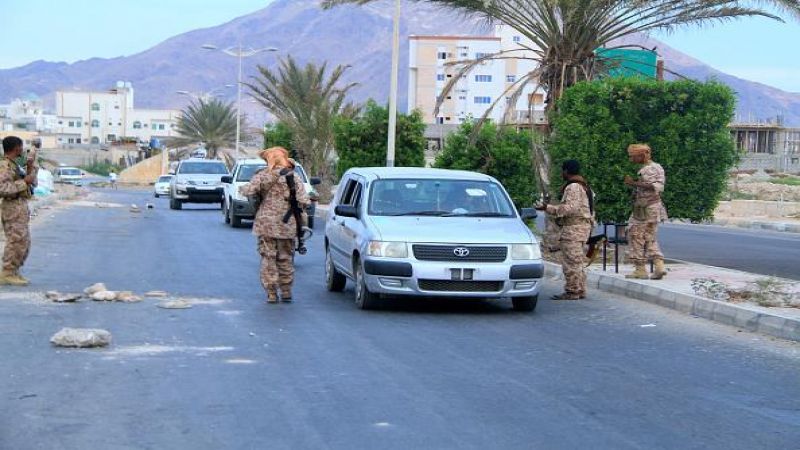
Local Editor
The UAE supports forces loyal to resigned Yemeni president Abd Rabbu Mansour Hadi that have arbitrarily detained, forcibly disappeared, tortured, and abused dozens of people during security operations, Human Rights Watch said Thursday. The UAE finances, arms, and trains these forces, which ostensibly are going after Yemeni branches of Al-Qaeda or the Islamic State (also known as ISIS). The UAE also runs at least two informal detention facilities, and its officials appear to have ordered the continued detention of people despite release orders, and forcibly disappeared people, including reportedly moving high-profile detainees outside the country.
Human Rights Watch has documented the cases of 49 people, including four children, who have been arbitrarily detained or forcibly disappeared in the Aden and Hadramawt governorates of Yemen over the last year. At least 38 appear to have been arrested or detained by UAE-backed security forces. Multiple sources, including Yemeni regime officials, have reported the existence of numerous informal detention facilities and secret prisons in Aden and Hadramawt, including at least two run by the UAE and others run by UAE-backed Yemeni security forces. Human Rights Watch documented people held at 11 such sites in the two governorates.
“You don’t effectively fight extremist groups like Al-Qaeda or ISIS by disappearing dozens of young men and constantly adding to the number of families with ‘missing’ loved ones in Yemen,” said Sarah Leah Whitson, Middle East director at Human Rights Watch. “The UAE and its partners should place protecting detainee rights at the center of their security campaigns if they care about Yemen’s long-term stability.”
Since March 2015, a Saudi-led coalition of states, including the UAE, has conducted an aerial and ground campaign in support of resigned President Abdu Rabu Mansour Hadi. The US has provided military support to the coalition.
Human Rights Watch researchers interviewed family members and friends of detainees, former detainees, lawyers, activists, and regime officials. Human Rights Watch also reviewed documents, videos, and pictures provided by lawyers and activists, as well as letters sent by lawyers or family members to various Yemeni and coalition authorities.
During the conflict, Al-Qaeda in the Arabia Peninsula (AQAP) seized weapons, territory, and revenue by looting the central bank in Mukalla, the capital of the Hadramawt governorate, and running the city’s port for about a year, Reuters reported. AQAP has carried out numerous attacks, primarily on military and security targets in Yemen’s southern and eastern governorates, killing dozens of people. The local ISIS affiliate in Yemen (IS-Y) has also claimed responsibility for similar attacks over the last two years.
The UAE has led counter-terror efforts against AQAP and ISIS’s local affiliate (IS-Y), including by supporting Yemeni forces carrying out security campaigns in southern and eastern parts of the country. Human Rights Watch has documented abuses by some of these forces – including forces known as the “Security Belt” that operate in Aden, Lahj, Abyan, and other southern governorates and the “Hadrami Elite Forces” that operate in Hadramawt.
The Security Belt and Hadrami Elite forces have used excessive force during arrests and raids, detained family members of wanted suspects to pressure them to “voluntarily” turn themselves in, arbitrarily arrested and detained men and boys, detained children with adults, and forcibly disappeared dozens. As one former detainee said he was told by another detainee in one of Aden’s many informal detention facilities: “This is a no-return prison.”
The UAE is reported to run some of these detention facilities and to have moved high-profile detainees outside the country, including to a base it has in Eritrea.
Former detainees and family members also told Human Rights Watch that some detainees had been abused or tortured inside detention facilities, most often through heavy beatings with officers using their fists, their guns or other metal objects. Others mentioned electric shocks, forced nudity, threats to the detainees or their family members, and caning on the feet.
One man, who was able to visit a detained relative, a child, in Aden, said the boy “looked insane” when he emerged from a crowded cell. He later disappeared from the detention center.
All parties carrying out detentions in Yemen should immediately stop forcibly disappearing, arbitrarily detaining, or torturing detainees, Human Rights Watch said. They should release anyone arbitrarily detained or detained for involvement in peaceful political activities, including especially vulnerable people such as children. They should immediately provide a list of all detention sites and of everyone currently in detention or who have died in custody.
The ban against torture and other ill-treatment is one of the most fundamental prohibitions in international human rights and humanitarian law. No exceptional circumstances may justify torture, and states are required to investigate and prosecute those responsible for torture.
Yemen is obliged to ensure that the Security Belt and Hadrami Elite Forces, as well as any other forces operating with the Yemeni government’s consent, comply with relevant legal requirements and procedural safeguards, including taking active steps to prevent disappearances, such as through regularizing the procedure of registering detainees and notifying family members of their whereabouts. The UAE has similar obligations, given its role in detentions.
Source: HRW, Edited by Website Team